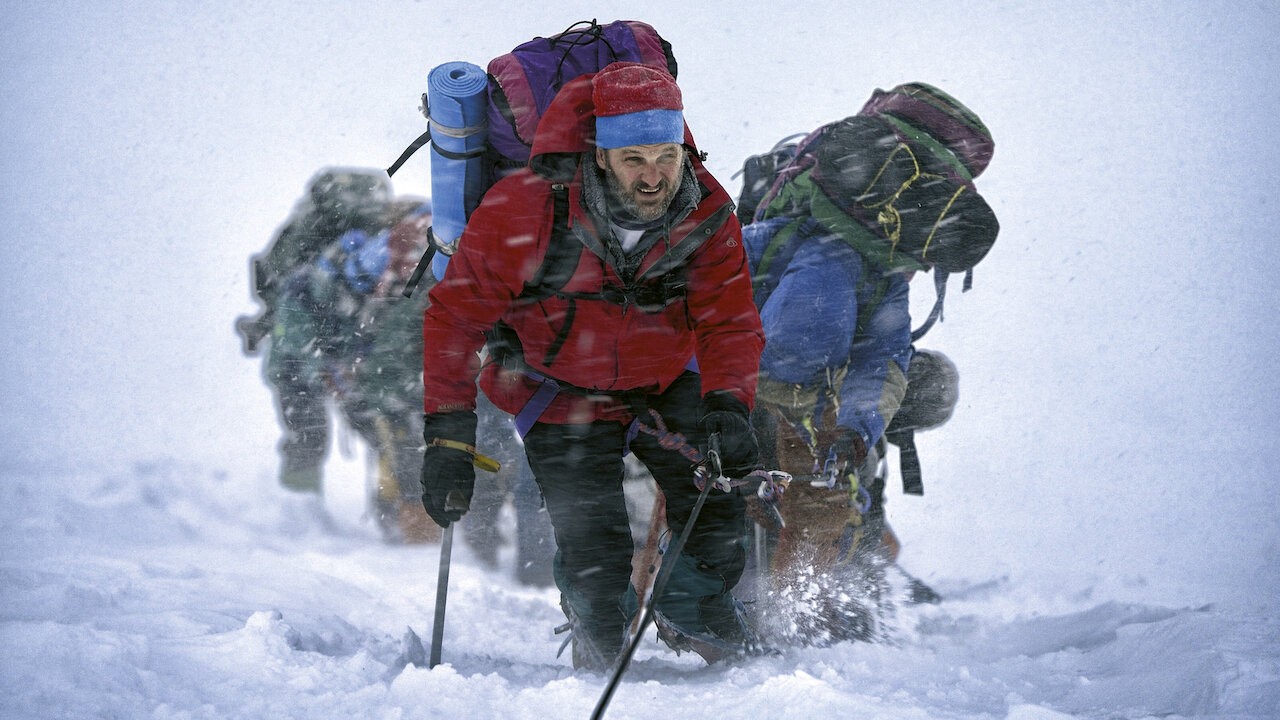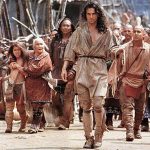Everest (2015)

Released in 2015 and directed by Baltasar Kormákur, “Everest” is a powerful and visually stunning film that brings to life the harrowing events of the 1996 Mount Everest disaster. Based on real events, the film offers a gripping portrayal of human perseverance, the allure of adventure, and the devastating consequences of nature’s unforgiving power. With a stellar ensemble cast and breathtaking cinematography, “Everest” provides an emotional and thrilling exploration of one of the most challenging and tragic climbing expeditions in history.
“Everest” recounts the true story of the 1996 Mount Everest expedition, focusing on the climbers who faced near-insurmountable challenges as they attempted to reach the summit of the world’s highest peak. The film primarily follows two main expeditions led by prominent climbers Rob Hall (Jason Clarke) and Scott Fischer (Jake Gyllenhaal), who lead their teams to the top of Everest in what is meant to be a triumphant achievement.
The narrative unfolds as the climbers encounter a series of severe obstacles, including unpredictable weather, insufficient oxygen, and the harsh realities of high-altitude climbing. The situation escalates into a life-threatening struggle when a violent storm hits, leaving several climbers stranded and facing extreme conditions. The film captures the climbers’ desperate attempts to survive as they confront the immense dangers of Everest, their physical and mental limits, and the moral dilemmas associated with their perilous journey.

The film features a robust ensemble cast that brings depth and authenticity to the characters. Jason Clarke portrays Rob Hall, a respected mountaineer and the head of the Adventure Consultants team. Clarke’s performance conveys the dedication and responsibility of a leader who is deeply invested in the well-being of his clients. Hall’s character is portrayed with a mix of warmth and determination, reflecting the human element behind the climbing expeditions.
Jake Gyllenhaal plays Scott Fischer, a rival climbing expert whose own team faces its own set of challenges. Gyllenhaal’s performance adds a layer of intensity and complexity to the film, highlighting the competitive and dangerous nature of high-altitude climbing.
Other notable performances include Keira Knightley as Jan Arnold, Rob Hall’s wife, who provides emotional depth to the story through her support and concern for her husband, and Josh Brolin as climber Doug Hansen, whose personal struggle becomes a central element of the narrative. Each actor contributes to the film’s exploration of the climbers’ personal and emotional stakes, making their experiences on Everest all the more poignant.

Baltasar Kormákur’s direction skillfully balances the grandeur of Everest with the intimate, personal struggles of the climbers. Kormákur’s approach ensures that the film captures both the awe-inspiring beauty of the mountain and the claustrophobic, life-threatening conditions faced by the climbers.
The cinematography by Salvatore Totino is a standout aspect of the film. The sweeping, panoramic shots of Everest’s towering peaks and treacherous slopes provide a breathtaking visual experience, immersing the audience in the mountain’s immense scale. The contrast between the majestic beauty of the landscape and the harsh reality of the climbers’ plight heightens the film’s emotional impact.
The film’s use of practical effects and location shooting adds to its realism, allowing viewers to experience the challenges of high-altitude climbing. The depiction of the storm and the climbers’ struggle against the elements is both harrowing and visually striking, enhancing the film’s dramatic tension.

“Everest” explores several themes, including human endurance, the allure of adventure, and the often harsh consequences of nature. The film delves into the motivations behind climbing Everest, illustrating the powerful drive that compels individuals to undertake such dangerous feats. It also examines the personal and ethical dilemmas faced by climbers when confronted with life-threatening situations.
The theme of human endurance is central to the film, highlighting the physical and psychological challenges faced by those attempting to summit Everest. The climbers’ struggle against the mountain’s formidable conditions serves as a testament to the strength of the human spirit, even in the face of overwhelming adversity.
Additionally, “Everest” raises questions about the commercialization of high-altitude climbing and the risks associated with it. The film presents a nuanced view of the expedition, acknowledging the complex interplay between ambition, risk, and responsibility.
“Everest” (2015) is a visually stunning and emotionally charged film that provides a gripping portrayal of the 1996 Mount Everest disaster. Through its powerful performances, breathtaking cinematography, and exploration of human endurance, the film offers a profound and poignant experience. By bringing to life the real-life struggles and tragedies of those who faced the ultimate challenge on the world’s highest peak, “Everest” stands as a testament to the indomitable human spirit and the awe-inspiring, yet perilous, beauty of nature.










